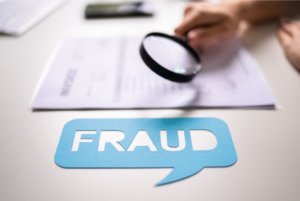
The IRS Has Your Back on Fraud
 The IRS is calling taxpayers’ attention to the ominously named Coalition of Scam and Scheme Threats: “[A] coalition representing the Internal Revenue Service, state tax agencies, and the spectrum of the nation’s tax industry today announced a new joint effort to combat the growth of scams and schemes threatening taxpayers and tax systems.”
The IRS is calling taxpayers’ attention to the ominously named Coalition of Scam and Scheme Threats: “[A] coalition representing the Internal Revenue Service, state tax agencies, and the spectrum of the nation’s tax industry today announced a new joint effort to combat the growth of scams and schemes threatening taxpayers and tax systems.”
CASST wants to protect taxpayers and the tax professional community by expanding outreach and education about emerging scams as well as developing innovative approaches to identify potentially fraudulent returns at the point of filing by creating infrastructure.
Here are some red flags to help you recognize potential scammers:
- Being promoted on social media is the fuel tax credit, but most taxpayers don’t qualify for it. The credit is meant to be used for off-highway business and farming. Only taxpayers with a business purpose and qualifying business activity — running a farm, purchasing aviation gasoline or using undyed diesel fuel or kerosene — are eligible for it.
- “Other withholding” claims on Form 1040. The IRS is increasing its review of Line 25C of Form 1040. You’re encouraged to attach supporting documentation. Don’t think you can just drop anything into this category.
- Using “ghost preparers” who don’t identify themselves on tax returns, i.e., no signature or Preparer Taxpayer Identification Number. Ghost preparers dupe taxpayers into filing inaccurate tax returns for bigger refunds and then vanish, leaving the taxpayer exposed to inaccurate claims. Always work with a legitimate tax preparer.
Stay on your toes
By staying vigilant, you can guard yourself against misinformation spread by influencers and scammers, which intensifies as tax season gets underway. By learning what scams are trending and speaking to a trusted tax professional, you’ll be protecting yourself and your tax forms.
Additional information on tax scams can be found at IRS.gov/help/tax-scams. Victims of tax-related identity theft can visit irs.gov/identity-theft-central. Other reliable tax information is available from IRS social media accounts and at IRS walk-in centers.
Report improper and abusive tax schemes and tax return preparers who knowingly prepare improper returns by mailing or faxing a completed Form 14242, Report Suspected Abusive Tax Promotions or Preparers, and any supporting material to the IRS Lead Development Center in the Office of Promoter Investigations.
Alternatively, you may report the information to the IRS Whistleblower Office for a possible monetary award. You may also want to inform the Treasury Inspector General for Tax Administration as well as the Internet Crime Complaint Center. Go to the Report Phishing and Online Scams page at IRS.gov for complete details.
And again, always work with a legitimate tax preparer.



